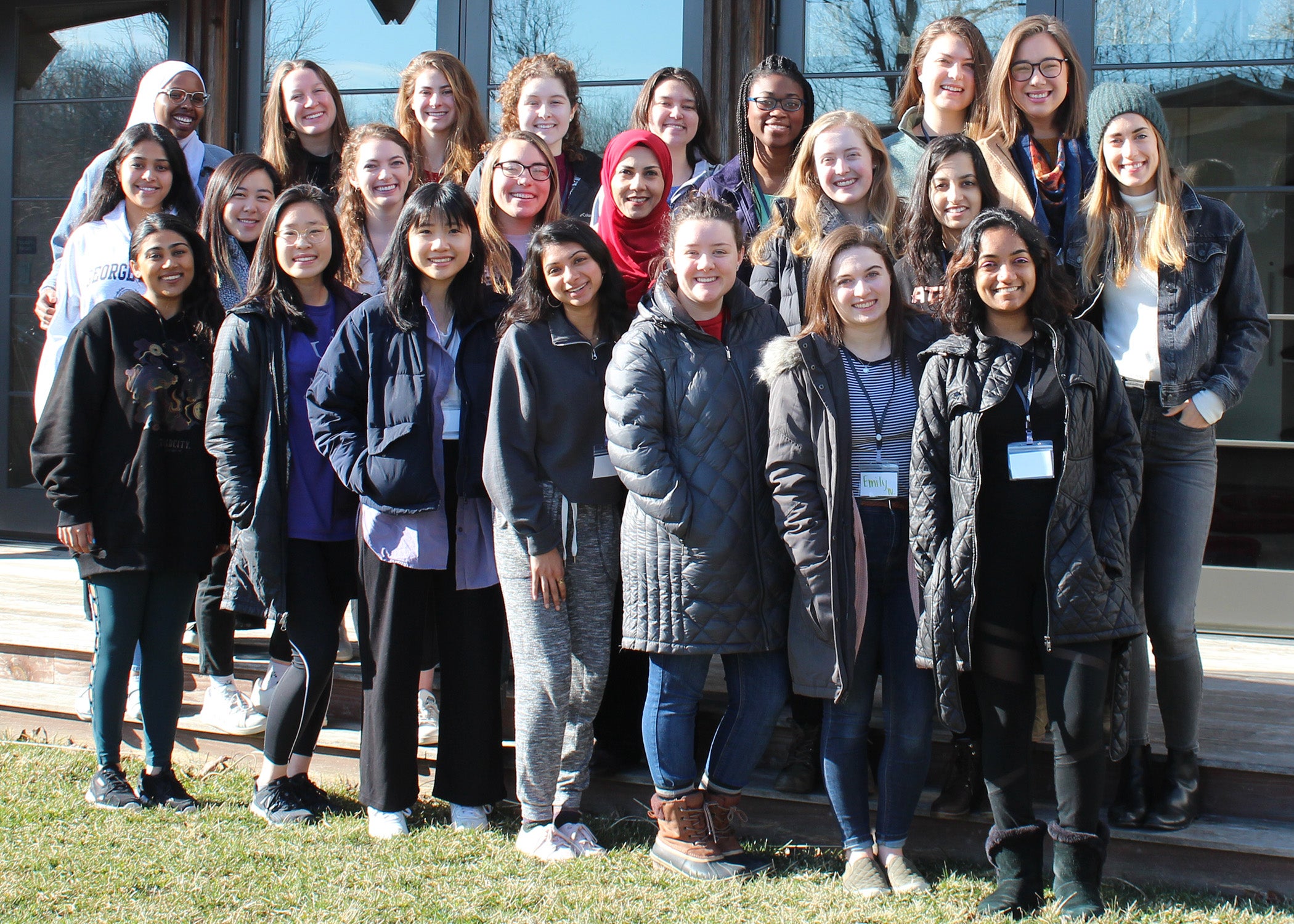Interfaith Spaces: a reflection on the Women in Faith Retreat

Caitland Love (back row, second from the left) with the Interfaith Womxn’s retreat participants. (photo by Gabriela Tew, C’20)
I grew up in a secular household. Although my parents had their individual conceptions of spirituality, they wanted my siblings and me to find (or not find) religion on our own terms. Quite honestly, I have always been uncomfortable with religion because of this; many of my experiences with it growing up were in classes like government or world history. I learned how religion swayed countries to wage wars against their own people, became the subject or object of persecution and divided people, even my own friends from different faith backgrounds. I strayed away from offers to go to youth groups or attend services with friends after sleepovers. The world of religion seemed both hostile and confusing to me.
So what business did an agnostic (atheist?) have in attending an interfaith womxn’s retreat at a Catholic university? This is what I asked myself on the bus out to the Calcagnini Contemplative Center (CCC) with several women I had never met from a club which I only tangentially knew about. I told myself that I was on this bus out of curiosity, to face something which had always made me uncomfortable, to talk through it with others and because being at Georgetown offered a unique time to do so. I am surrounded by close friends from several different faiths at this school, a couple of whom were on the retreat. I wanted to have the tools to start a dialogue on faith in order to be a more informed participant in the conversations around it, for both my friends and myself.
The weather was beautiful, as is the location and spaces at the CCC. There is something uplifting, overwhelmingly so, about only seeing hills and quaint houses for miles. As the sun went down, we sat in a small circle in one of the glass buildings on the grounds. We did ice breakers and small reflective activities which I was familiar with. In one activity, I quickly mentioned my lack of a faith background, and no particular attention was drawn to it. We talked about our identities and our families, how religion or a lack thereof affected the schema of our lives.
After some break time, we came back to this circle. I sat criss-cross on a thin cushion. It was late; candles, along with the slight moon shown through the windows, created a soft light. We’d all been told to bring a prayer, lyric, or quote to contribute to this circle, something which was valuable or impactful to us. I looked around at the women around me, with notes sequestered in journals or books, on small scraps of paper or notes on their phones. Madeleine Vitek, the associate director for Campus Ministry opened up the floor for sharing. We sat silently, all a bit tired, and this silence seemed to stretch. Finally, someone stood up and shared a bible verse. Next, a conversation between two characters in a book. A prayer in Arabic and then its translation. An email from a dad about storytelling in Judaism. The lyrics of a song. Words muttered under their mother’s breath. Each moment of sharing was followed by a moment of silence, that rare silence which holds both respect and contemplation. When everyone had taken their turn, we held that silence, some people with their eyes closed and others looking at the moon outside.
So what business did an agnostic have in attending an interfaith womxn’s retreat at a Catholic university? In a place where I thought I would learn about dialogue, find a voice for those in faith in my life, I instead found power in listening. I found power in collective presence, in that space surrounded by women from all different backgrounds, religious or otherwise. I found power in the ways interfaith spaces can uniquely unite and uplift those engaged within them.
By Caitland Love, C’21
Caitland Love is a junior in the College and a member of the Georgetown Scholars Program Student Board.